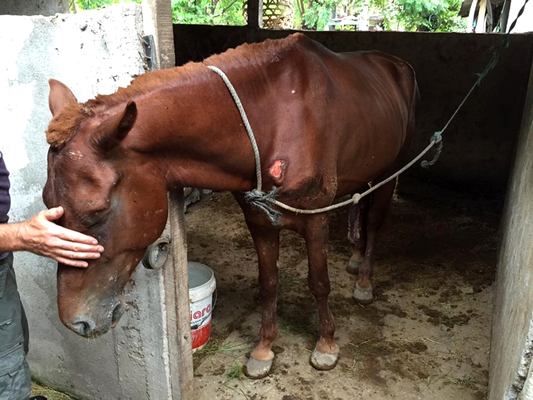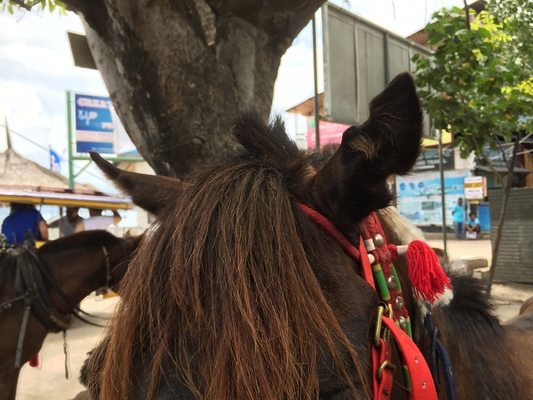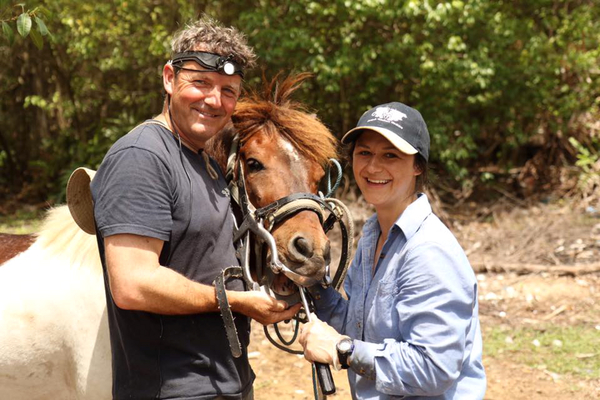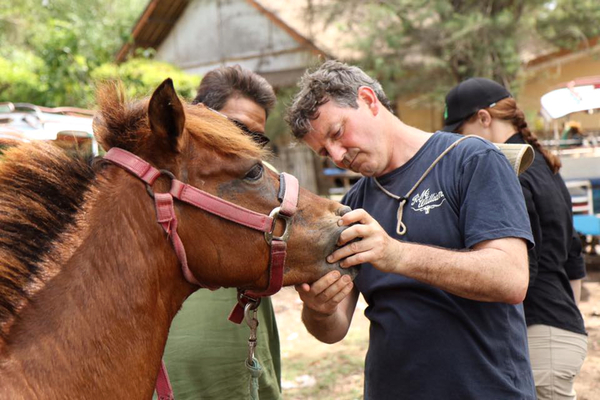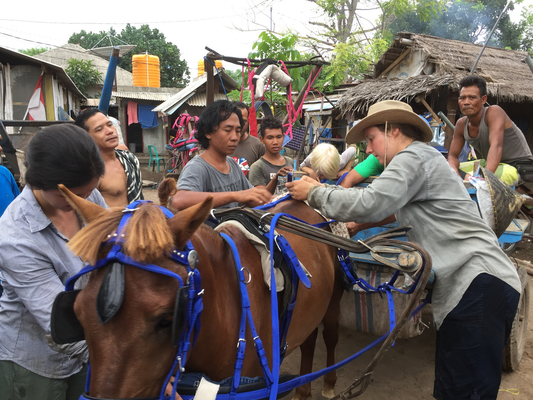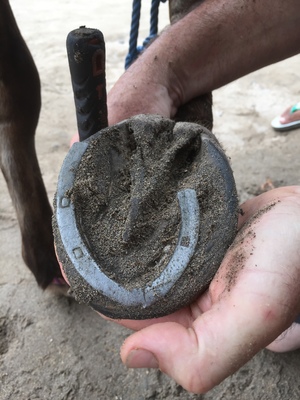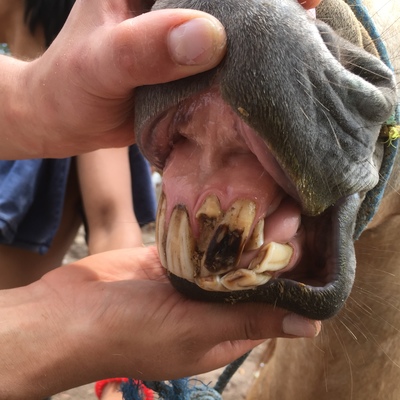
By Alana Mitchelson
Paul Owens remembers vividly the dire state of one particular pony.
It was underweight and had a nasty shoulder wound from where its harness had been constantly rubbing.
As Mr Owens and the other volunteers approached, the pony – Bert, as they came to name him – moved towards them but would not eat the grass feed.
He just stood there with his eyes closed, head down, resting his muzzle on their arms and nuzzling.
He wanted a cuddle.
They named him Bert, short for Berharap meaning ‘hope’ in Indonesian.
“It was a deeply moving moment when all Bert wanted was to be hugged,” Mr Owens said.
“It is so hard to see a horse broken physically and emotionally – the outward signs of trauma and pain.
“I shudder to even think about how he would be feeling.“
The group of volunteers, led by Dr Kirsten Weber who commenced the work three years ago, conducted free health checks to assess horses in desperate need of treatment.
But the long-term mission is to ultimately push for an alternative transport solution.
“I was asked to join a charity group from Western Australia who were going out to the Gili Islands to carry out veterinary care for the cart ponies that reside on the three islands,” Mr Owens said.
“The ponies are used to taxi tourists around the island, and to cart building materials and rubbish from the hotels or restaurants to the waste tip in the centre of the island.
“The cart ponies are often forced to pull overweighted carts and suffer horrific wounds from ill-fitting brides, bits and harness equipment. They work in extreme conditions of heat and humidity and may go several hours without access to water or rest.”
The volunteers completed 87 dentals in five days.
During the clinics, ponies were wormed, given vitamins, provided dental care, wounds and infections were treated, management was discussed with the owners, and improved padding and girth covers were provided.
The most common injuries were lip lacerations from the home-made ‘bits’, which are placed in the mouth of a horse to assist the driver in communicating with the animal.
There were also many wounds from the girth rubbing, a piece that is fastened around a horse’s belly to keep the saddle in place, heat stress and diarrhoea cases, and many hoof problems.
Mr Owens said a hoof problem could often be a death sentence.
He said his greatest concern was the condition of the ’rubbish ponies’, some of the hardest working horses on the island, that are exposed to “terrible“ living and working conditions.
“Their existence is dire. When not hauling tonnes of waste – 20 tonnes is produced every day during the tourist season – their home is a 2.5 by 2.5 metre concrete pen, hardly fit to be called a stable,“ he said.
“They never see a paddock and do not know what it is like to graze naturally, roll or gallop free.
“They work so hard that they often have horrid injuries that leave then unfit to do the job, so they are sent away to another island to be slaughtered often at a very young age.
“We hope our efforts will give them relief and we can educate their owners to care better for them.“
The volunteers hope to raise funds to improve the stables, equipment, to educate the drivers on how to look after their ponies and train locals to become farriers to provide foot and hoof care.
Mr Owens said he would like to see rubbish collections on the small island carried out by solar powered, electric or petrol-run cart as the workload was becoming too much for the ponies who have “really suffered“ as a result.
He said the trip had been life changing.
“It was hard work and distressing at times, but extremely rewarding,“ he said.
“There is much to do and I will be returning every year to assist the ponies until we have achieved a happy outcome for all these ’beasts of burden’ – retirement in a paddock living out their years as normal ponies.“
Charity group Animal Abroad assists with providing medicine, feed and other equipment but relies on donations.
For more information or to donate horse bits, harness pads, boots and bridles, search “Horse Vet Dentist“ on Facebook or visit www.animalaidabroad.org.

